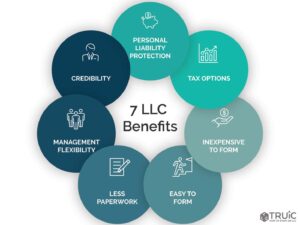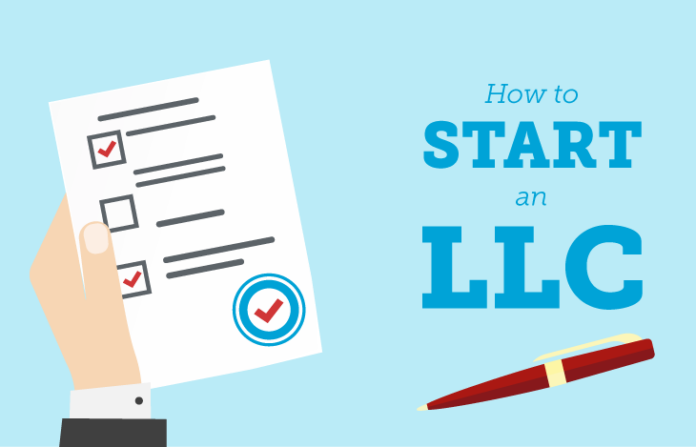Creating a Limited Liability Company (LLC) is a popular choice for entrepreneurs looking to protect their personal assets while enjoying the flexibility of a business structure.
An LLC combines the best features of corporations and partnerships, offering limited liability protection to its owners (members) without the complexities of a corporation. Below is a detailed guide on the steps required to establish an LLC in the United States.
1. Choose Your State
The first step in forming an LLC is deciding where to register your business. While many entrepreneurs choose to form their LLC in their home state, others may opt for states like Delaware or Nevada, which are known for their favorable business laws.
The choice of state can affect your taxes, fees, and the level of regulation your LLC will be subject to, so it’s crucial to research the implications of forming an LLC in different states.
2. Select a Unique Name for Your LLC
Your LLC’s name must be unique and distinguishable from other businesses registered in the state where you’re forming the LLC. Most states have a business name database that you can search to ensure your desired name is available.
Additionally, the name must include “Limited Liability Company,” “LLC,” or a similar abbreviation. Be mindful of any restricted words that may require additional paperwork or licenses.
3. Appoint a Registered Agent
A registered agent is an individual or business entity responsible for receiving legal documents on behalf of your LLC. The registered agent must have a physical address in the state where the LLC is formed and be available during normal business hours. This role is crucial as it ensures that your LLC can be contacted for legal matters.
4. File the Articles of Organization
The Articles of Organization, also known as a Certificate of Formation or Certificate of Organization in some states, is the document you file with the state to officially create your LLC.
This document includes basic information about your LLC, such as its name, address, and the names of its members. There is typically a filing fee that varies by state.
Read Also: https://thevoice.co.ke/how-to-earn-money-online-without-investment-a-comprehensive-guide/
5. Create an Operating Agreement
While not required in all states, an Operating Agreement is a vital document that outlines how your LLC will be run. This agreement details the roles and responsibilities of members, how profits and losses will be distributed, how decisions will be made, and what happens if a member leaves the LLC.
An Operating Agreement helps prevent misunderstandings and ensures that all members are on the same page.
6. Obtain an EIN (Employer Identification Number)
An EIN, also known as a Federal Tax Identification Number, is required for tax purposes if your LLC has more than one member, or if you plan to hire employees.

You can obtain an EIN from the IRS either online or by mail, and it’s free of charge. This number will be used to open a business bank account, file taxes, and handle payroll.
7. Comply with Other Tax and Regulatory Requirements
Depending on your industry and location, you may need to obtain specific licenses and permits to operate legally. This could include business licenses, zoning permits, or industry-specific certifications.
Additionally, you’ll need to register with your state’s tax agency if you plan to sell goods or services subject to sales tax. Don’t forget to comply with any annual reporting requirements your state may impose.
8. Open a Business Bank Account
Once your LLC is officially formed, it’s essential to open a separate bank account for the business. This helps maintain the separation between your personal and business finances, which is crucial for maintaining limited liability protection.
To open a business account, you’ll typically need your LLC’s EIN, Articles of Organization, and Operating Agreement.
9. Maintain Your LLC
Forming an LLC is just the beginning. To keep your LLC in good standing, you’ll need to file annual reports, pay any required state fees, and stay on top of your business taxes. Regularly review your Operating Agreement and update it as needed to reflect changes in your business.
If your LLC operates in multiple states, ensure you comply with foreign qualification requirements, which involve registering your LLC in each additional state.
10. Consider Professional Assistance
While it’s possible to form an LLC on your own, the process can be complex, especially if you’re unfamiliar with legal and tax regulations.
Many entrepreneurs choose to work with an attorney or a professional service provider to ensure that everything is done correctly. These professionals can help with filing documents, drafting an Operating Agreement, and advising on compliance issues.
Creating an LLC involves several steps, each with its own legal and administrative requirements. By carefully following these steps, you can establish a strong foundation for your business and enjoy the benefits of limited liability, flexibility, and professionalism that an LLC offers.
Whether you’re starting a new venture or restructuring an existing one, an LLC is a powerful tool that can help protect your personal assets while allowing your business to grow and thrive.


